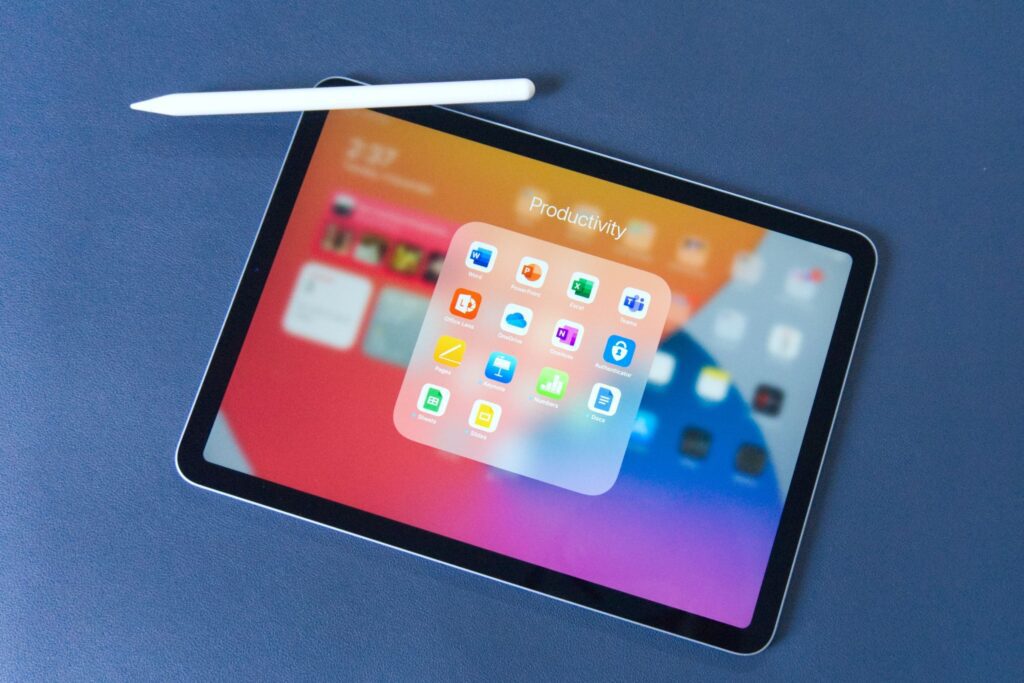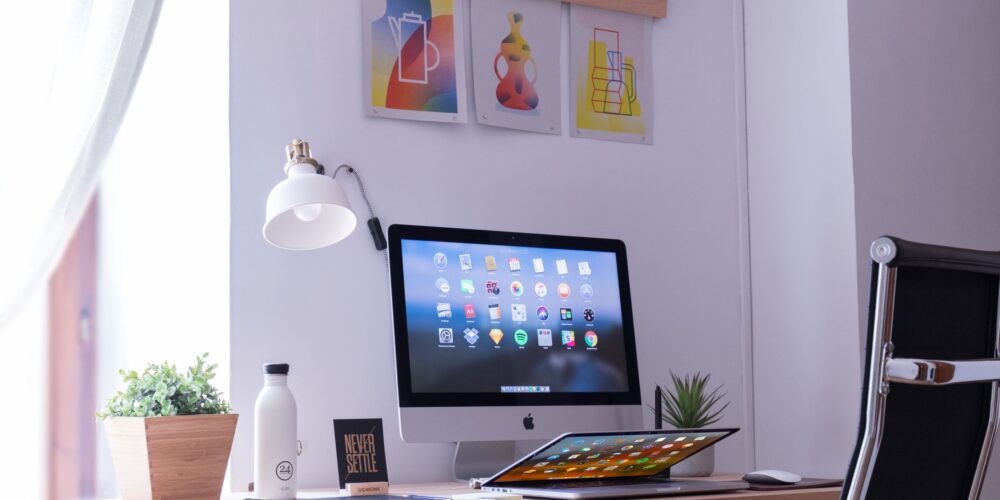Let’s start by reflecting on something. How old are you? In your 20s, 30s, or 40s? Now, what’s the average age people live to? On average, it’s around 70 years worldwide.
So, think about this: if you’re in your 30s, you’ve already lived half of your life on this beautiful planet. And if you’re in your 40s, your past is bigger than your future.
I’m not saying this to make you sad and I really hope you live for more than 100 years. But I just wanted to help you realize that life goes by very quickly.
So ask yourself this, Are you on the path to becoming the person you always wanted to be? Are you living the life you always envisioned for yourself?
Well, even though life can never be perfect, you can always get close to whatever goal or vision you have for yourself and shape your future the way you want.
Some people are naturally gifted and have a sharp memory that makes them good at learning quickly, but others need to work extra hard to learn the same things.
Some of us are born with a special talent, like a great singing voice, which makes it slightly easier to make a good career and eventually a good life.
But most of us have to put in a lot of effort to learn new things. Life isn’t always fair, we all know this but that’s how it is. We take it as it comes and make the most of it.
We can either complain about it or we can acknowledge it for what it is and actually do something to make it better.
The most important thing to realize is that we’ve all got this one life, so let’s try our best to be the best version of ourselves and create a good life for ourselves and our children.
Regardless of everything else, one thing is true for all of us. We all aspire to do great things and be extremely successful in life. We want to build our dream home in a picture-perfect location surrounded by nature and raise our kids with all the comforts of life.
But as life goes by, we lose sight of our future self that we always aspired to be because of the hectic pace of everyday life.
Our daily jobs have become so demanding that they take most of our time and energy. And we need weekends to refuel ourselves and get ready for the week ahead.
This never-ending cycle continues and that vision of our dream life kind of fades away and becomes blurry.
Let’s face it, unless you’re really lucky and inherit the family business, all of us have to do one job or the other to make a living in the beginning.
But what’s sad is that the job, which should have been the stepping stone to something greater often becomes the only thing we do.
That job was supposed to take care of our daily needs for survival, and we should have worked side-by-side on things that we actually wanted to do in life. But either our daily job is too demanding or we get too comfortable that we don’t want to put in that extra effort.
We might think we don’t have time for other things in life. But is it really true? Without the fear of judgment just think about it, do we not have enough time or are we not productive enough and using our time wisely?
The latter will be true in most cases because we know how much time we spend mindlessly scrolling on social media, watching Netflix, etc. We waste so much time on such things that it worries us sometimes but we don’t really do anything to fix this.
All this time could have been used to do something really productive that can take us a step closer to our dream life.
But don’t worry, if you’re reading this blog, you’re ready to make a change and improve your life.
This blog is not about how to accomplish tasks at work as quickly as possible, but about how to be productive enough to use this one life and the time available to you to reach your goals and manifest the life you always imagined.
But first, let’s start from the beginning and talk about what it means to be productive.

Table of Contents
What is Productivity?
People often confuse productivity with being busy all the time. The common understanding is that productivity is all about doing the maximum amount of work in as little time as possible.
While it may look like this, the concept of being productive is totally different than just being busy. It’s not about always working and exhausting yourself with one task or the other.
You would be surprised to know that some people even cut down on their water intake so they don’t have to take bathroom breaks. Because this also hampers their productivity.
Being productive at work doesn’t mean that you work long hours desperately typing on your computer. Being productive at home doesn’t mean that you skip your meals and juggle between laundry, cleaning the house, and other household chores.
Being productive means being smart about how you use your time in the best way possible. It’s about prioritizing the tasks that are more valuable in your opinion. It’s not about how many checkboxes you can tick, but rather about how much value you can create.
Let’s be honest, we’ve all made plans to do a bunch of stuff, but most of the time we can’t get them all done. So, what’s the solution? How can we do better? Let’s find out!
7 Effective Ways To Be Productive in Life
Being productive and efficient doesn’t require you to do something out of the box. It’s not rocket science. Just a few changes in your everyday lifestyle and your thought process can make a lot of difference
Let’s look at some of the most powerful and effective ways to use your time wisely and be productive in everyday life.
Whether you’re a working professional, a student, or someone managing a home, these tips and tricks will help you in all aspects of your life.
1. Prioritize Wisely
As I said before, being productive isn’t about doing every single thing under the sun in a given time. It’s about making the most out of the time you have.
The key is to identify and focus on the tasks that really matter to you, those that will create the most value according to you.
There are only so many hours in the day and spending time on things that don’t matter to you is like watching precious time slip away, just like sand slipping through your fingers.
Both in your personal life and your professional life, identify the things that will generate the most value according to you.
Whether you want to develop a new skill, transform your body, or get a dream job, visualize becoming the best version of yourself and figure out the things that you really want to do in life.
You decide what you want to accomplish in the short and long term.
If there are some things that need your attention today, tomorrow, or in the week ahead, prioritize the ones that will generate the most value according to you.
Remember, it’s absolutely okay if you can’t finish every single task – after all, we’re human, not machines.
Trying to do everything that comes your way will negatively impact your mental health and will expose you to problems like stress, fatigue, etc.
Doing the right things and doing them right is much more important than doing lots of them. Always choose quality over quantity.
2. Set Clear Goals
Once you’ve figured out what you want to do, the next important step is to break it down into smaller tasks and set clear short and long-term goals.
If you’ve decided to learn a new language, make short-term goals like learning commonly used words and phrases to hold simple conversations or be able to greet others and introduce yourself in that language.
The long-term goal can be writing grammatically correct sentences or having a fluid conversation with near-native fluency.
Setting clear goals will give you a clear direction and purpose, and help you avoid confusion and stay focused on what truly matters.
Otherwise, you’ll be walking aimlessly without having a clear direction about where to go. Setting short-term goals is really important because they keep you motivated and persistent in your efforts.
The idea of achieving something or reaching the deadline while setting up a goal can be overwhelming but breaking that down into short-term goals can ease off that pressure and give you the confidence that it can be achieved.
3. Planning
Now that you know what you want and have broken it into smaller goals, it’s time to figure out the “How.” This means making a plan and actually working on it to reach your goals.
Planning is the most crucial step in doing anything because planning is like making a map for yourself to follow. It’s like creating a blueprint for yourself.
Have you ever been in the middle of something and wondered what to do next? Or had a bunch of things to do but didn’t know where to start? Planning helps with all that confusion.
It gives you a clear path to follow. Without a plan, you might spend a lot of time trying to decide what to do next.
But how do you make a plan that you can honestly follow?
Well, here are some things to think about while making your plan. For both short and long-term goals, imagine what you want to achieve and then work backward.
For example, if you want to be a blogger, a short-term goal could be writing one blog by the end of the week.
So, you need to think about what it takes to write that blog. You’ll have to come up with a topic you want to write about, something you’re passionate about, or something you have deep knowledge of.
Decide how long it should be so that you’re able to communicate effectively, work on the outline, and actually start writing. This is just one example to explain how you can create a plan and it can be applied to anything you want.
Then you’ll have to find the time of day when you can focus the most. Usually, it’s early in the morning right after you wake up because your mind is clear and not occupied with other things that can make it hard to concentrate.
So find and use the time when you’re most focused to work on the plan you created and do it consistently. How consistent you are in your efforts makes all the difference.
A few bonus tips to help you plan better:
- Plan Ahead: When you’re going to bed, think about what you’re going to do tomorrow. Having a preliminary plan eases the morning decision-making process.
- Start Your Day Early: You may or may not be a morning person but morning is the time when you’re most focused and even if you wake up a half-hour early, it will make a big difference. It will give you extra time to think and work which takes away a lot of pressure.
- Create a Morning Routine: This involves doing things before your actual workday starts. Find what resonates with you and stick to it. It could involve having coffee and reading a few pages of a book, listening to podcasts, or taking a walk in your garden among the plants and nature. Meditation is one of the best things you can do early morning, it will improve your concentration and mental health.
- Do Important Things First: If you accomplish the most important and time-consuming task early in the day, it will ease off the pressure and give you a sense of accomplishment.
Planning isn’t about making life strict but about making it smoother. It saves time and stops things from getting messy.
Just like you need a plan to build something big, you need a plan to have a productive and happy day.
Whether you want to learn something new, handle work, or take care of your home, a good plan will help you figure out the “how”. Remember, you will succeed only if you follow that plan honestly and consistently.
4. Reflect and Adjust
Now comes the part where you become the judge of your own actions and reflect on what you’ve accomplished this week, this month, or this year. Maintain a journal, and keep track of your progress.
One of the best ways to capture this journey is by maintaining a journal. It helps you keep track of your progress and hold yourself accountable. You can go digital or choose a physical journal – whatever suits you.
At the end of the day, week, or month ask yourself – “Did I accomplish the goals I set for myself?” It’s very important to reflect on your actions and progress if you want to improve yourself and continue making progress towards your goals.
It’s totally fine if you’re not able to reach the goal you set for yourself but what matters the most is taking a pause to understand why and what more you can do.
Sometimes it could be because some things took longer than expected, or something unexpected came up while working.
Or maybe you were able to reach your goal faster than anticipated.
When you keep track of your progress and reflect on it on a regular cadence, you gain insight into a lot of things that you can use to refine your approach in the future. And that’s how you learn and get better over time, and become more productive.
So understand that being productive is not just about achieving goals, but about learning from the journey and being better with time.
As you sit down with your journal, reflect on the things you’ve done well, acknowledge the challenges you faced and the things that went wrong, and make the necessary changes.
5. Minimize Distractions
We live in the digital era with so many tools and technologies at our disposal that make our lives easier and help us stay informed about what’s happening in the world.
But just as these tools and technologies are a blessing, they are equally harmful if not used consciously.
While social media apps keep us connected with the rest of the world, they can sidetrack us if we don’t use them responsibly.
We’re all guilty of mindlessly scrolling through social media feeds whenever we have a few minutes to spare, which is perhaps the biggest time thief of all.
Well, who can blame us, they are so addictive and those funny videos and interesting stuff keep us entertained.
People who design social media algorithms also understand human psychology, so they know how to keep people glued to their phones. And we fall victim to that. Not our fault though!
But, if we keep falling into this trap, we’re wasting away the precious and limited time we have.
Getting interrupted by notifications on our phones when you’re trying to focus is really frustrating and can significantly impact your productivity.
According to a research study by the University of California, it takes around 23 minutes to focus again after interruption.
Therefore, we must realize how toxic this habit is and how much time we waste checking our phones every few minutes. They not only waste our time but also endanger our mental health.
It will take a lot of willpower to resist these distractions but here are a few tips that can help:
- Turn off the notifications for all the social apps so that your phone doesn’t buzz every few minutes. If someone really wants to connect with you, they can call directly or send a text message. But if they are sending a text or sharing something on social media, then it’s not urgent enough and can be attended to later.
- If you can’t turn off some notifications, like emails or work messages, you can put on a “Busy” or “Do Not Disturb” status.
- Decide on specific times when you’ll use social media, and only check those apps during those times. Don’t keep opening them whenever you want.
6. Celebrate Small Wins
Whenever you accomplish a goal you set for yourself, no matter how small or big it is, celebrate and reward yourself.
It doesn’t have to be a grand celebration, something simple like enjoying ice cream while watching your favorite show can work. This will give you a sense of accomplishment and motivate you to do even more.
As humans, we need constant motivation to keep going and do better. This comes from a happy chemical in the brain called Dopamine which is released when you reach a goal and feel good about yourself.
Our brain learns that every time you finish something, we get a reward. This connection in your brain between your efforts and rewards makes you want to reach your goals and get things done.
Create a system and assign rewards to short-term and long-term goals. Be smart about it, like having a special treat when you lose a kilogram, or watching an extra episode of a show after you finish writing a blog or making a YouTube video.
You get to decide the rewards so be sensible about it and choose rewards like treating yourself with good food, watching a movie, going out in nature for a walk, taking a nap, etc.
This helps you link your achievements with something enjoyable, and it pushes you to keep doing well and become more productive.
7. Practice Self-Care
I believe we can all universally agree that there is nothing in life without good health. Everything else takes a backseat.
But when it comes to being productive or doing something in life, we often forget to take care of the most important tool we have: ourselves.
Because either we work too hard and become too ambitious, or we don’t have a care in the world and keep lying on the couch munching and watching TV or Netflix. Either way, we take health for granted.
We are humans, not machines, so we should understand that and take care of our physical and mental health if we want to be productive and lead a meaningful and successful life. Even machines need regular maintenance and fuel to function properly.
If you have good mental health, you can deal with problems and stress better and with a clear mind. You’ll be able to concentrate and focus better and do things more efficiently.
If you have good physical health, you will feel more energized and active. You won’t feel fatigued or burned out soon. Self-care is not just a trendy term; it’s a basic need for maintaining our mind and body.
And you don’t need a fancy self-care routine, just a few simple things every day to take care of your mind and body. Here are some simple self-care ideas:
- Sleep: Make sure that you get around 7-8 hours of sound sleep so that your mind is fully relaxed and ready.
- Meditate: Meditation is the best thing for your mind, it helps your mind relax and improves its ability to concentrate and focus better.
- Good Food: Make sure you consume a well-balanced diet that is high in protein and good fats. And be mindful when it comes to eating sugar and unhealthy fats.
- Exercise: Make it a habit to do some form of physical activity every day. You can start with simple things like taking a walk and then gradually progress to slightly challenging physical activities.
- Work-life Balance: Set hard boundaries between your work and personal life and don’t take your work home. Even when you’re at work, make sure you take enough breaks so that you don’t feel burnout.
Wrapping Up!
Congratulations on making it this far! I hope you’ve found this blog interesting and informative.
And I hope you have learned something because, in the hustle and bustle of modern-day life, we often confuse productivity with being busy all the time and trying to do as many things as possible and as quickly as we can.
As we’ve learned in this blog, being productive means identifying and working on things that create the most value for us.
So take a moment to think about your dreams and what you want to do in life, and visualize how it will feel to be the best version of yourself, and what will it take to get there.
Prioritize what you want to do in your daily and overall life. Create a plan, set short and long-term goals, and work toward them consistently.
If you follow this path, you can manifest everything you have visualized for yourself.
And don’t forget to take care of your physical and mental health in the process. Because there is nothing in life without good health. Be kind, keep striving for your goals, and enjoy the journey. Namaste!







Leave a Reply